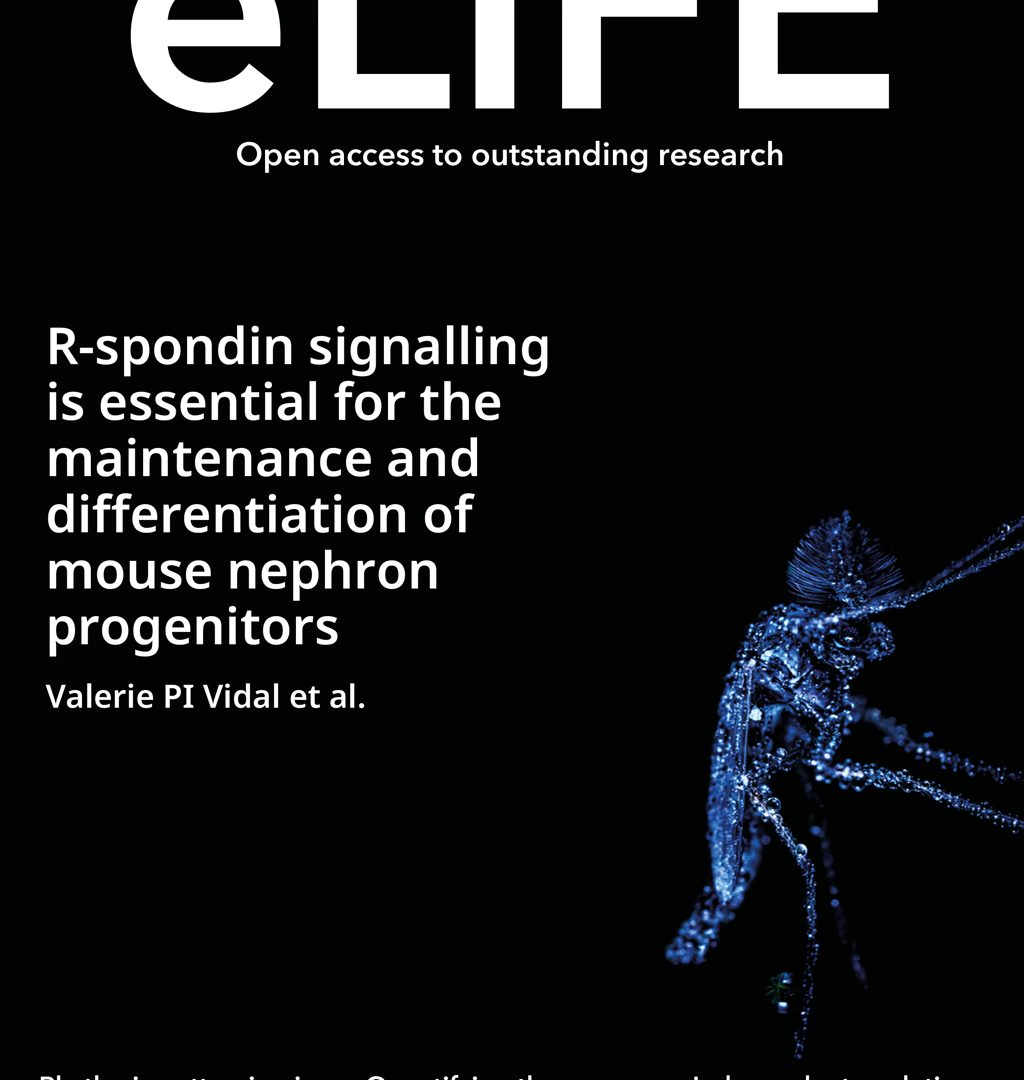Elife. 2020 May 1;9. pii: e53895. doi: 10.7554/eLife.53895.
Vidal VP1, Jian-Motamedi F1, Rekima S1, Gregoire EP1, Szenker-Ravi E2, Leushacke M2, Reversade B2, Chaboissier MC1, Schedl A1.
Author information
1 Université Côte d’Azur, Inserm, CNRS, Institut de Biologie Valrose, Nice, France.
2 Institute of Medical Biology, A*STAR, Singapore, Singapore.
Abstract
During kidney development, WNT/β-catenin signalling has to be tightly controlled to ensure proliferation and differentiation of nephron progenitor cells. Here, we show in mice that the signalling molecules RSPO1 and RSPO3 act in a functionally redundant manner to permit WNT/β-catenin signalling and their genetic deletion leads to a rapid decline of nephron progenitors. By contrast, tissue specific deletion in cap mesenchymal cells abolishes mesenchyme to epithelial transition (MET) that is linked to a loss of Bmp7 expression, absence of SMAD1/5 phosphorylation and a concomitant failure to activate Lef1, Fgf8 and Wnt4, thus explaining the observed phenotype on a molecular level. Surprisingly, the full knockout of LGR4/5/6, the cognate receptors of R-spondins, only mildly affects progenitor numbers, but does not interfere with MET. Taken together our data demonstrate key roles for R-spondins in permitting stem cell maintenance and differentiation and reveal Lgr-dependent and independent functions for these ligands during kidney formation.
PMID: 32324134
DOI: 10.7554/eLife.53895

